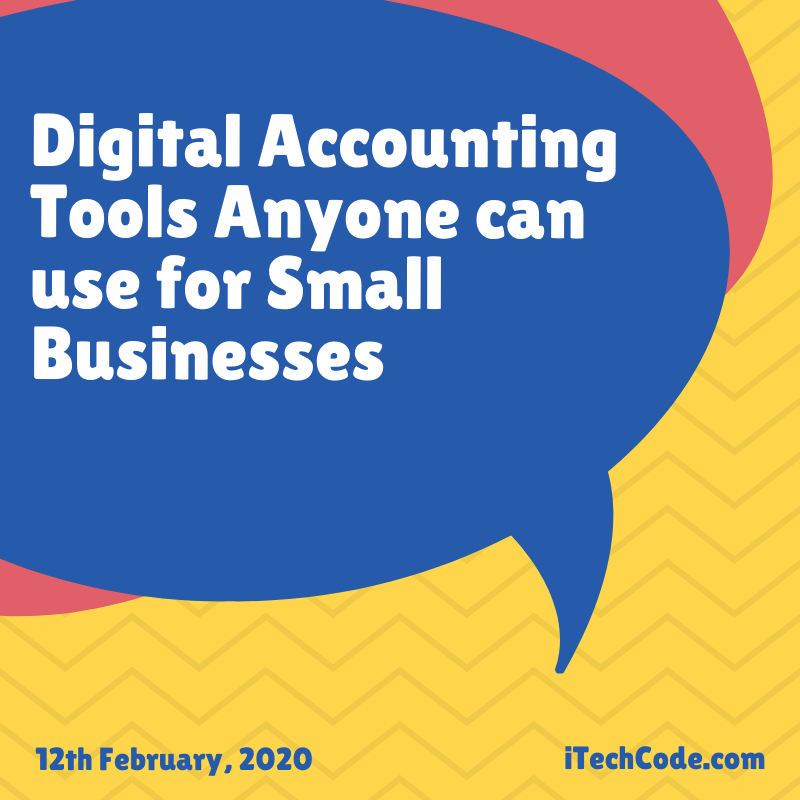There are so many accounting tools out there, it can be tough to know where to start. Check out this comparison guide by Piesync if you want to dive straight into the best accounting tools. Want to know what all of your options are? Read on. In this guide we will be going through the digital accounting tools that anyone can use but particularly if you are a small business.
Benefits of using an accounting tool
Why not just use an accountant? You might be wondering if you even need to use a digital accounting tool and whether you should go with an accountant. While there are advantages to using an accountant, for a small business, using a digital accountant can be highly beneficial.
Here’s why:
All in one place – When you use an accountant you need to spend time gathering receipts, invoices, etc, compiling them and sending them to an accountant, well you have already done half of the work here. Most accounting tools allow invoicing so you can easily keep everything in one place and cut the middle man out.
Cost – Hiring an accountant to do your bookkeeping can be costly, by using a digital accounting tool, you can cut down on some of that cost.
Time – Not only can you save yourself the time of the back and forth with an accountant, but with third-party app integrations you can easily feed information from one application to your accounting software.
Things to consider
Before you begin weighing up which tool is the best for your business, take into account the things you may want to consider before committing.
Features – Most accounting tools come with the ability for invoicing, income and expense tracking, customer management and financial report generation. These features are great for small businesses that do not need complicated processes. If you are a small e-Commerce company you may want a service that can deal with tracking inventory, or, if you are service-based, a tool that can issue invoice deadlines to clients.
Cost – It’s easy to pick any old tool for its price. While you should keep your budget in mind, you should also keep in consideration that what you pay for is what you get.
UX – Choosing a software that is easy to use is high on the list of priorities. Most services include a dashboard, some are basic, while others you can customize to show certain sets of data. It depends on how hands-on you want to get.
Multi-Currency – Do you trade internationally? Some accounting tools can keep track of international payments in your currency, keeping your books accurate at all times.
Third-Party Integration – If you work with CRM systems and other business software, you may want to choose a tool that will allow for integration, so you can easily streamline all your data.
Cloud-based service and mobile access – If you would like the option to access your accounts on the go, a cloud-based accounting tool is the one for you.
Intuit QuickBooks
You have probably heard of QuickBooks, or seen their adverts on the TV and that’s because they are one of the most popular digital accounting tools. Users enjoy QuickBooks because of its ease of use and flexibility.
What users love:
- Well designed interface and ease of navigating
- Profit projection
- Customizable reports
- Thorough contact records and transactions forms
- Extensive payroll support.
- New mileage tracking.
What user’s don’t like:
- Poor online documentation
- Pricey subscriptions
Sage
Sage is known as one of the best accounting tools for small businesses, offering options for customization and an extensive set of financial tools.
What users love:
- Multiple subscription options
- Office 365 integration
- Comprehensive support
- Options for customization
- Excellent inventory management
What user’s don’t like:
- No mobile app
- Poorly designed interface / No dashboard
- No time tracking
- Expensive subscriptions
Freshbooks
FreshBooks is another accounting software that is popular amongst freelancers and small businesses. It is intuitive, well designed and has an extensive range of features that makes it such an attractive option for small businesses.
What users love:
- Time tracking
- Supports invoices, estimates, and expenses
- Supports projects and proposals
- Overall very user-friendly
- Mobile App
- Team collaboration tools
- Product and service records
What user’s don’t like:
- Limits to invoice customization
- No quarterly tax estimates
Zoho
If you’re looking for a good cloud-based solution, Zoho Books is a strong contender. Good for small businesses, Zoho is also affordable and offers a range of financial tools but loses strength in its limited options for payroll.
What users love:
- Well designed dashboard
- Payment gateway options
- Mobile app
- Price
- Extensive options records and translation forms
What users don’t like:
- To enable time tracking you must create a project
- The payroll feature is limited to California and Texas
Xero
The last on this list is by no means the worst Xero is a strong contender amongst small businesses for its price, inventory tools, and document management.
What users love:
- Affordable
- Online support
- Inventory management
- Custom report filters
- Reconciliation tools
- Integrates with payrolls software
- Expense tracking
What user’s don’t like:
- Mobile app needs improvement
- No phone and chat support


You can also stay updated by subscribing to iTechCode.